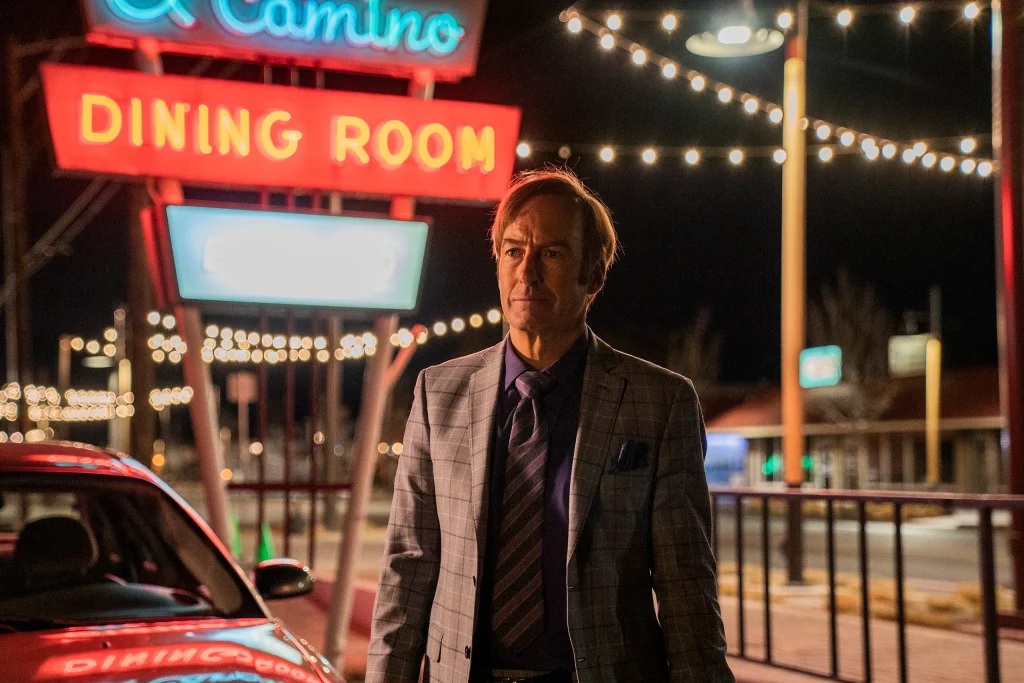The brilliant detail had viewers grasping for the tin foil before Chuck McGill’s final moment. Better Call Saul understood precisely how to twist the knife. The story of Chuck McGill is undoubtedly the most tragic of Better Call Saul’s six seasons of misery. Jimmy’s older brother, played by Michael McKean, is a renowned attorney who suffers from a psychosomatic phobia of electricity. Jimmy makes a lot of effort to aid Chuck when he isolates himself indoors and away from all contemporary conveniences, but their sibling rivalry just gets uglier. Chuck commits suicide after Jimmy takes away his legal license.
Better Call Saul’s series conclusion sees Jimmy admit his part in Chuck’s death, recognizing the guilt he pretended wasn’t there for so long after spending three entire seasons sweeping Chuck’s death under the emotional rug. Jimmy’s courtroom rant triggers a flashback from before Better Call Saul, demonstrating how much both brothers wished they could go back in time. This touching sequence serves as a suitable obituary for Chuck McGill and the brotherly dynamic that continued to play a significant role in Jimmy McGill’s life even after the death of the elder sibling.
A minor detail during Jimmy’s courtroom confession makes Chuck’s Better Call Saul farewell even better. The camera pans to the “EXIT” sign in the courtroom as Bob Odenkirk’s character says Chuck, and an electrical hum can be heard. This is not simply a reference to Chuck’s illness, but it also immediately brings to mind “Chicanery” from season three of Better Call Saul. The episode ends with a buzzing “EXIT” sign hanging over the oldest McGill brother’s head, hinting at his relapse and ultimate demise. Jimmy humiliates Chuck in court. Jimmy looks back on a moment he regrets much in the Better Call Saul series finale’s “Chicanery” allusion, which sets up Chuck and Jimmy’s last scene’s Time Machine book reveal.
A minor detail during Jimmy’s courtroom confession makes Chuck’s Better Call Saul farewell even better. The camera pans to the “EXIT” sign in the courtroom as Bob Odenkirk’s character says Chuck, and an electrical hum can be heard. This is not simply a reference to Chuck’s illness, but it also immediately brings to mind “Chicanery” from season three of Better Call Saul. The episode ends with a buzzing “EXIT” sign hanging over the oldest McGill brother’s head, hinting at his relapse and ultimate demise. Jimmy humiliates Chuck in court. Jimmy looks back on a moment he regrets much in the Better Call Saul series finale’s “Chicanery” allusion, which sets up Chuck and Jimmy’s last scene’s Time Machine book reveal.
Chuck Electricity’s Deeper Meaning In Better Call Saul
For Jimmy McGill, the “EXIT” sign from the season finale of Better Call Saul has another, arguably much more dismal, hidden significance. Reminders are a challenging part of grief for anybody who has lost a loved one. Familiar music playing on the radio, an old photograph appearing, or even a stranger donning the same scent might evoke wistful recollections. The sound of buzzing electricity will always be a source of paralysis for Jimmy McGill. Jimmy will be reminded of Chuck and the shame of making use of his brother’s condition for his gain every time he hears the buzz of a neon sign, the soft whirr of a battery, or the fizz of distant static. Jimmy won’t be able to escape that sound, not even in prison.
It resembles Chuck himself keeping an eye on his younger sibling. The buzzing audio effect was frequently employed as a point-of-view method throughout the three seasons of Better Call Saul when Chuck McGill was alive, enabling viewers to hear the crackling electricity as acutely as Chuck himself. As close to throwing Chuck McGill’s spectral spirit into the courtroom as Better Call Saul can go is hearing that noise again after Jimmy’s confession in the finale. Would he be appalled at how much lower Jimmy’s ethical floor truly was, or would he be pleased to see his brother finally accepting responsibility?
